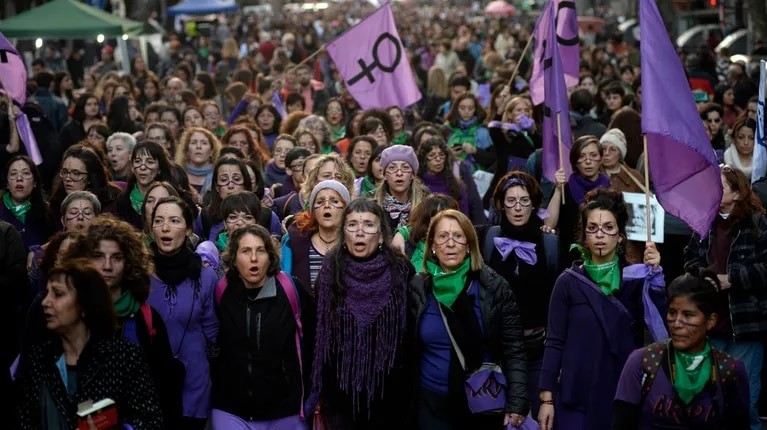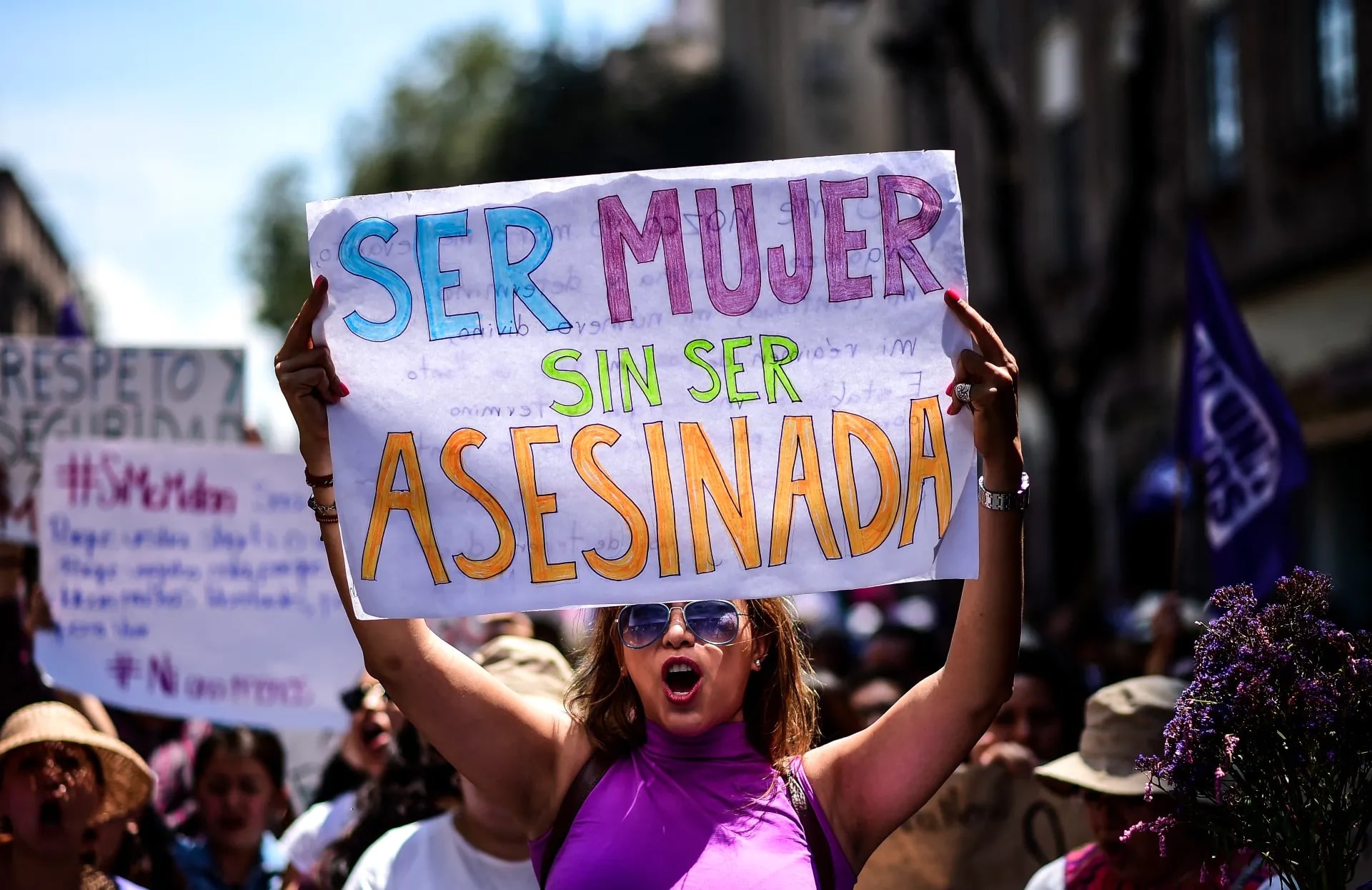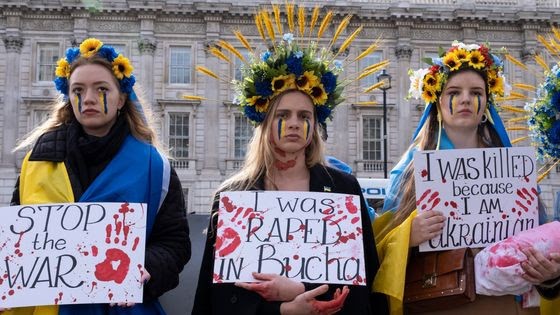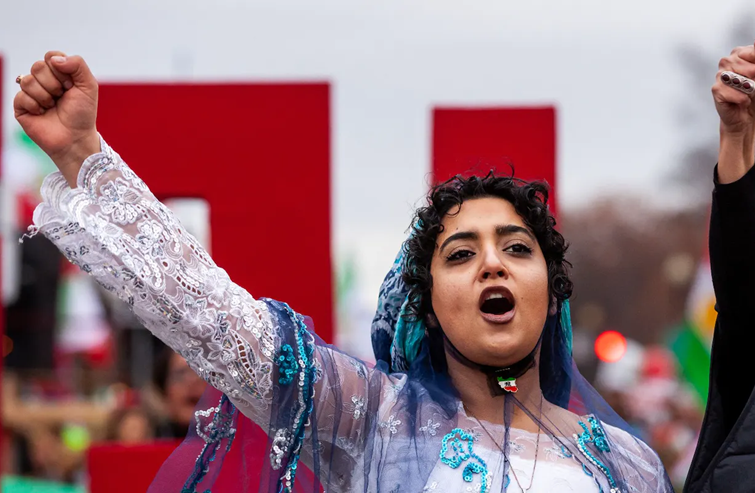8 March, the mobilisation of women in social movements
On the occasion of 8 March, it is essential to highlight the mobilisation of women in social movements, who are fighting to put an end to all forms of violence against them.


On this International Women's Day, as mobilisations against violence towards women have emerged all over the world in recent years, it is important to remember that women are at the forefront of mobilisations protesting against the violence they suffer every day.
Women are at the center of many social movements around the world
In 2017, the #MeToo movement spread around the world and seems to have brought visibility and international solidarity for feminist movements against violence towards women, nevertheless women did not wait for this movement to manifest their demands. To give just a few examples, starting in 2011, Egyptian women mobilised against the sexual violence they suffered during the Tahrir Square movement; in 2015, South American feminists gathered around the Ni Una Menos (Not one less) movement to protest against feminicides in Latin America, where 14 of the 25 countries with the highest number of feminicides in the world are concentrated.

“Being a woman without being murdered
Photo © Ronaldo Schemidt – AFP
In Mexico, a country considered by the UN to be the most dangerous in Latin America for women, the discovery of the body of a young woman who had disappeared in the city of Monterrey in April 2022, aroused the anger of many women in Mexico who wanted to highlight the problem of gender-based violence that their country faces, as 10 women are killed every day on average in Mexico. This women’s mobilisation went beyond Mexico’s borders, extending from Peru to the United States.
While these mobilisations generally emerge from specific events and specific struggles of women in different parts of the world, they characterize above all a global phenomenon of violence against women.
Women are creating new forms of mobilisation
The international aspect of feminist movements contributes to the global deployment of these mobilisations and demonstrates that these social movements are connected to each other: through common demands, in particular the issue of violence against women; through social networks; and also through the reproduction of certain modes of action, such as performances in the public space. For example, in 2019, the Chilean collective Las Tesis created the choreography “Un violador en tu camino” (“A rapist on your way”), which has been appropriated worldwide and has contributed to highlighting the issue of sexual violence. All over the world, this performance has been exported in a massive way. We have seen a reappropriation of both the choreography and the text, which has been translated and shaped according to the problems of each country. Women are thus the main actors of a renewal of protest action in the world.
International solidarity around the theme of violence that resonates with women around the world

Ukrainian protesters in London, alerting the public to the rapes committed in Butcha by the Russian army – ©Getty – Mike Kemp / In Pictures
Rape in Ukraine
The Russian invasion of Ukraine has been highlighted by numerous reports of crimes and abuses perpetrated by Russian soldiers, including sexual violence against women. In June 2022, the United Nations High Commissioner’s Office reported “124 alleged conflict-related sexual acts across Ukraine“. Thus, these reports of alleged sexual violence against Ukrainian women and girls by Russian troops triggered a wave of demonstrations and protests in many cities around the world in support of Ukrainian women.
- Read more about sexual violence in armed conflict.
There is a growing appreciation and solidarity among women around the world. On 16 September 2022, the death of Mahsa Amini, a 22-year-old woman, arrested by the morality police in Tehran for “wearing inappropriate clothing” led to a large-scale mobilisation of Iranian women, but also to a certain “international sisterhood”, thus transforming itself into a women’s social movement with specific demands. The media coverage of the uprisings led to a wave of support worldwide, demonstrating the growing awareness of the international community regarding the rights of Iranian women. Demonstrations of support took place in more than 150 cities such as in Canada, Berlin and other European capitals to denounce the violence suffered by Iranian women.

The Women, Life, Freedom movement in Iran. © Amnesty International
Therefore, it is important to pay tribute to the ongoing efforts of women who are struggling to make their voices heard and their demands about violence against women loud and clear.

